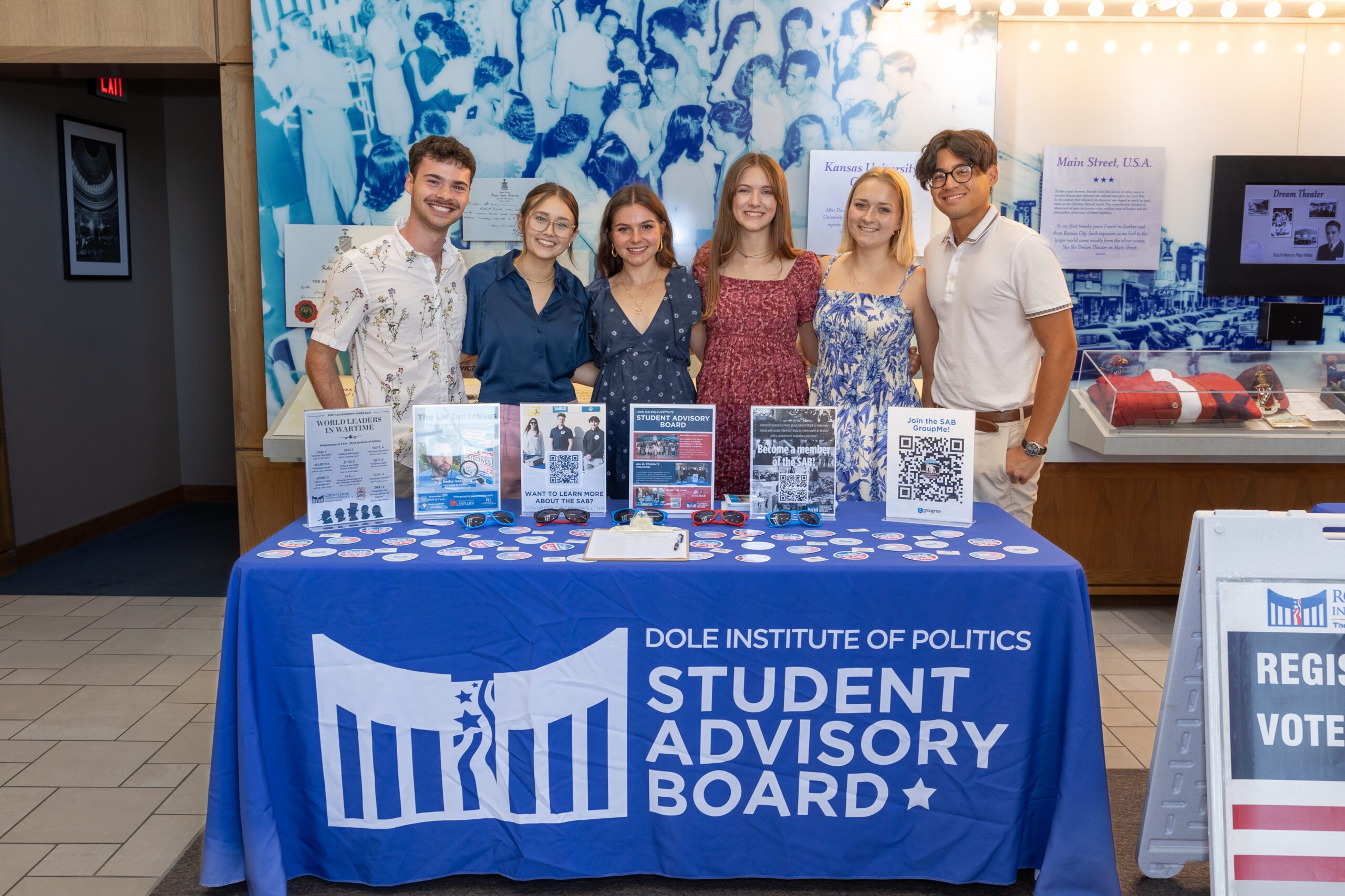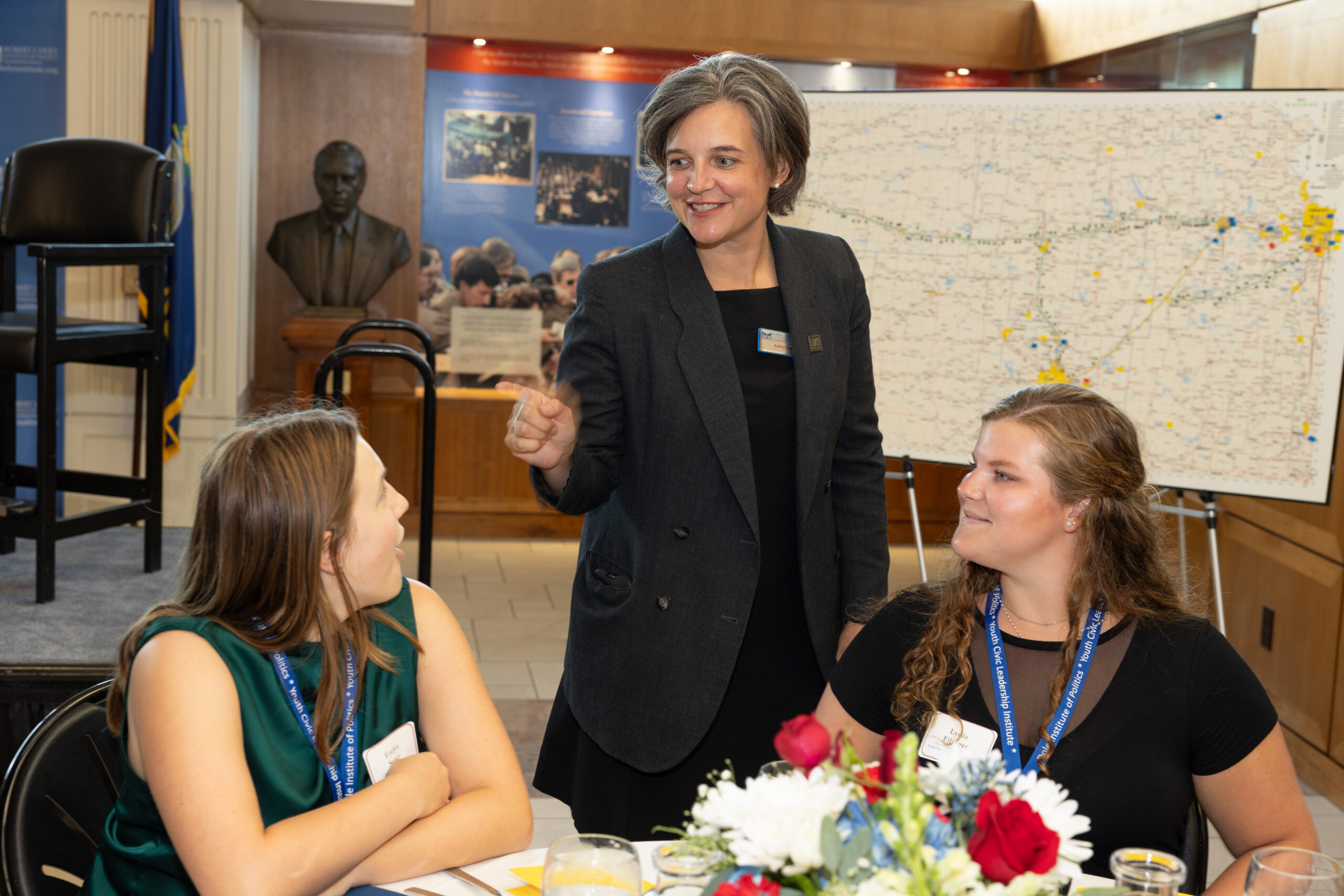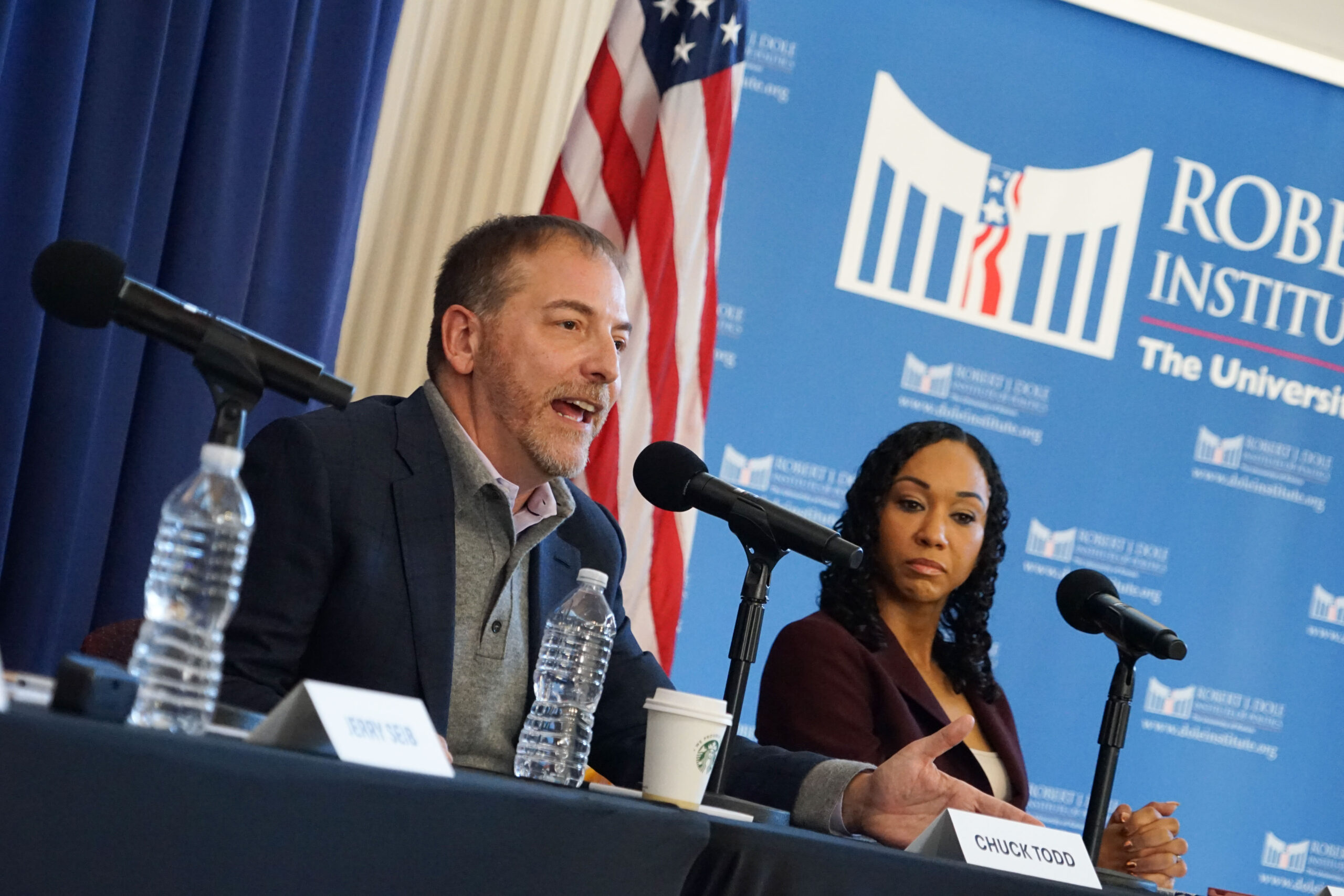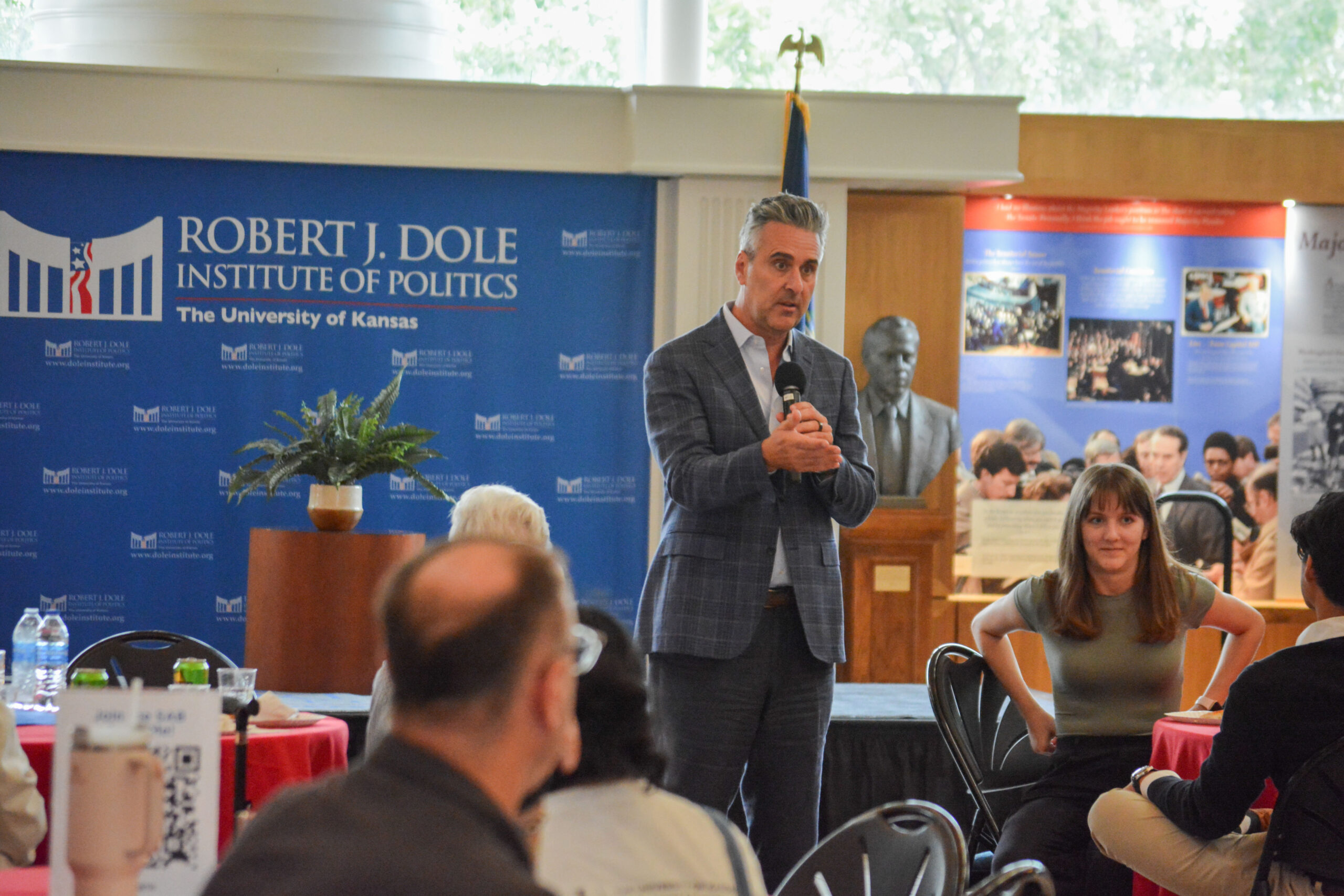About the Dole Institute
Fostering bipartisanship, civility, and discourse since 2003
At the Dole Institute, political conversations and processes are opportunities to connect across differences. Inspired by the leadership legacies of Senators Bob and Elizabeth Dole, and the enduring civic contributions of the Greatest Generation, we promote a new era of leadership that uses politics to bring people together through opportunities that emphasize bipartisan cooperation, public service, and civic education and engagement.
“In America we take pride in the past, but we live for the future. To the young people who will come here for inspiration as well as information, may you never stop reaching for the stars – whatever the difficulties.”
Senator Bob Dole, speaking at the Dole Institute's Dedication Ceremony on July 22, 2003

Politics connects people
At the Dole Institute, we believe political conversations and processes are opportunities to connect across differences.
Inspired by the leadership legacies of Senators Bob and Elizabeth Dole, and the enduring civic contributions of the Greatest Generation, we promote a new era of leadership that uses politics to bring people together through opportunities that emphasize bipartisan cooperation, public service, and civic education and engagement.
Learn more about our mission, vision, and values by exploring our strategic plan.

Audrey Coleman, Director of the Dole Institute (center)
From the Director
“Now, more than ever,” is a phrase I’ve heard repeated time and time again by supporters, board members, campus community and beyond about the necessity of the Robert J. Dole Institute of Politics and our mission.
Unprecedented interconnectivity and lightening fast communication has already remade our society, and only will continue. While we must adapt—as a country and as an Institute, we won’t leave our institutional values behind. They are the foundation not only of participatory self-governance, but of human relationships. They shape the quality of our politics for the better, but their practice is up to us alone.
Our mission and vision embrace the values we have held here at the Dole Institute of Politics for over 20 years, but orients them firmly to the needs of the new generation, invests in perspective-expanding educational opportunities not found anywhere else, and connects them to a broad community of support eager to foster their future leadership.
Bob Dole believed in the power of individual agency, and he loved connecting with people to build towards a shared cause for the betterment of all. Our liberty, freedom, and aspirations for full participatory democracy depend on these essential human elements.
Join us in this 250th anniversary era as we commemorate, evaluate, and move our country forward by cultivating principled leaders equipped to navigate tomorrow’s challenges. Connections, conversations, and experiences are our building blocks.
Crucially, we don’t have to think alike to build a shared future. We just have to commit to the shared project.
Now, more than ever.
The Dole Institute is committed to universal accessibility in all programs and resources. We are in the process of making all of our web projects fully accessible. An accessible version of the material represented on this site will be made available upon request. Please contact us at doleinstitute@ku.edu to request the material be made available in an accessible format, or for general assistance.


